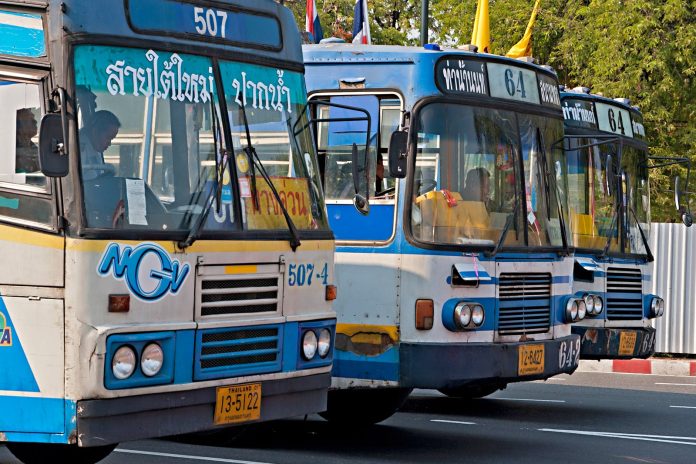Bus crisis in the city of Bangkok. Indeed the waiting is long and especially there are not enough buses on the 27 most critical routes. Mr. Kittikarn Jomduang Jaruworaphonkul, director of the Bangkok Mass Transit Authority (BMTA), revealed that the BMTA has 2,885 buses, whose life span is from 5 to 25 years. However, their state of disrepair is such that the BMTA has made arrangements for their continued maintenance. Before covid, BMAT was receiving between 800,000 and 900,000 people per day. However, with the crisis this number has been reduced to 200,000-400,000 people per day. However, with the relaxed covid rules, 700,000 people travel per day, which is 40% more than during the covid. In order to manage the problem as well as possible, a survey was opened to understand where the problem came from. There is a shortage of drivers/collectors but also of buses. The problem is trying to be solved as soon as possible.
At present, BMTA has completed route improvements on the road network. It has tested its plan with the release of buses based on ridership. This plan will continually evolve and be flexible to the situation of each day. “As for the purchase of new buses, the BMTA is an agency that is facing loss problems. Acquiring a new car requires a high budget to invest, whether it is buying or leasing a car. This can affect the overall management of the BMTA, so it should be considered with utmost care and caution. In addition, BMTA is in the process of improving the rehabilitation plan based on the opinions of various agencies, including the resolutions of the State Enterprise Policy Committee, so that it is suitable for the current situation and the future,” said Kittikarn.



